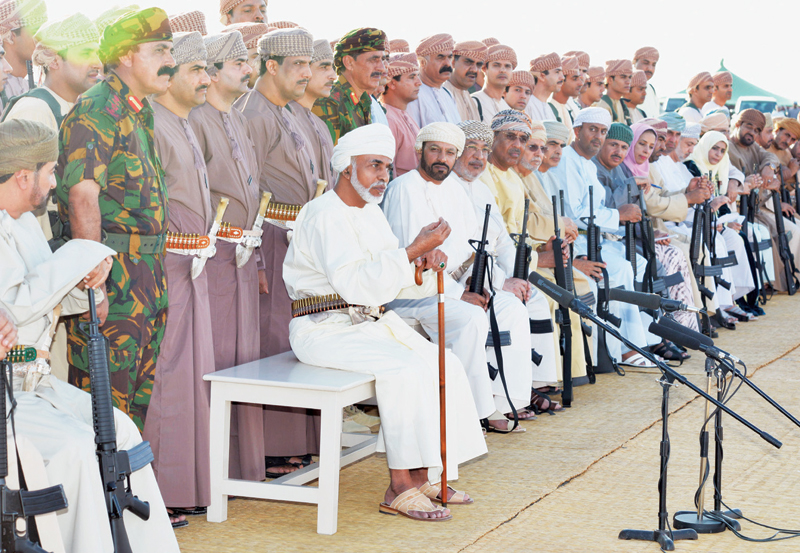

Andrew Hall -
The passing of His Majesty Sultan Qaboos, on January 10, 2020 marks the end of close to a half century of his leadership and will be remembered as a time of tranquility, tolerance and the remarkable development of Oman widely referred to locally as ‘the renaissance.’

Andrew Hall[/caption]
Sultan Qaboos, the longest reigning leader in the Arab world at the time of his death was born in Salalah in November 1940, the only son of Sultan Said bin Taimour and received his early education in Oman and the United Kingdom, followed by the Royal Military Academy Sandhurst. He returned to Oman in 1966 and occupied himself with an extensive study of Islam and the history of his nation. It was during this time that his ambition to change and modernise his country began to grow culminating in his ascension to the throne on July 23, 1970.
At the time of his ascension the then 29-year-old Sultan Qaboos faced significant challenges within the Sultanate, which at the time was among the poorest and least developed nations in the world. He moved quickly to rename the country previously known as Muscat and Oman to that of the Sultanate of Oman in order to aid in the establishment of political unity between the coastal regions around Muscat and the countries mountainous interior. Utilising his considerable charisma and political acumen he worked tirelessly to forge bonds between the disparate factions within the country.
At this time the Sultanate was under significant threat from a growing insurgency in the south of the country known today as the Dhofar Rebellion; a communist insurgency supported by the elements inside the neighbouring state of South Yemen as well as cold war communist factions. Following an extensive campaign supported by regional and international allies the Sultan was successful in defeating the insurgency in 1976 which proved a significant milestone in uniting the country.
The young Sultan also made significant strides in modernising Oman during this time, having inherited the throne of a nation lacking totally both physical and governmental infrastructure, but blessed with the financial benefits that come from oil revenues. Oman progressed steadily on a programme of modernisation including construction of roads, telecommunications, schools, ports, dams and hospitals as well as supplanting the Indian Rupee as the national currency by introducing the Omani Rial in 1973 and formalising the abolition of slavery in the same year.
Today Oman benefits from modern infrastructure which has yielded significant benefits for its population, it’s important to note that during his reign the literacy rate has increased significantly and the life expectancy of Omani nationals has increased from 50 years old in the 1970’s to an average of 77 years. His many achievements also include developing Oman as a stable, and inclusive state where the local majority peacefully coexist along with adherents of other religions. In fact, the country’s constitution, the Basic Statute of the State, prohibits discrimination based on religion. In a region often fraught with religious tensions Oman is remarkable in that instances of religious violence are virtually non-existent and further that terrorism has not emerged in any way.
While nominally serving as an absolute ruler he made significant political achievements including the drafting of a national constitution and the establishment of a parliament as well as various ministries essential for the functioning of a modern state. Politically his achievements in foreign policy are perhaps the true testament to his lasting legacy however, over the course of his long reign he successfully stewarded his nation through many turbulent times in the regions development ensuring that the Sultanate was seen by all as a friend, becoming a key mediator between nations such as Israel, Iran and the United States maintaining at all times the principal of Oman’s independence and neutrality.
Even in death he ensured, through careful planning and pragmatism, that a robust process of selection of his successor was in place, thus further cementing his place as the “Father of Oman”.
The writer was Projects Manager at the ‘Oman Through the Ages,’ construction site near Manah, from its beginnings until mid-2019, when he left to work on another large project in Saudi Arabia. He fondly recalls his tenure in Oman, and he and his wife Mei, return often to visit friends.
Oman Observer is now on the WhatsApp channel. Click here



